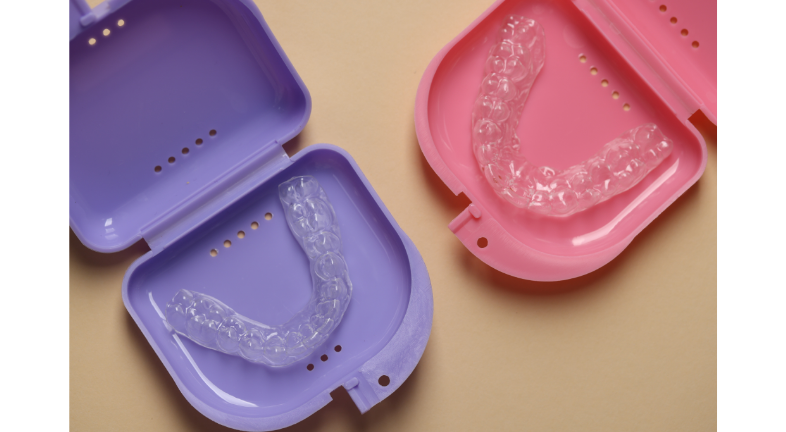
Table of Content
As time goes on, our mouths go through a lot of changes. One significant dental milestone is the emergence of wisdom teeth, also known as the third molars. They’re the large teeth at the back of the mouth and are the last to grow in, typically surfacing during our late teens or early twenties. Wisdom teeth can be beneficial for chewing when they’re healthy and appear in the correct position, but if they don’t have enough space to grow or are in the wrong place, they can cause us many problems.
Turn back the clock hundreds of thousands of years to the time of our early human ancestors, and wisdom teeth played an important part in survival and helped people chew. They were handy backups when other teeth were decayed or damaged. The early human jaw was much bigger than ours and could easily accommodate wisdom teeth. The average jaw today doesn’t have sufficient space for these molars.
A problematic wisdom tooth may lead to an infection called pericoronitis, which is characterised by inflammation or swelling of the gum tissue around wisdom teeth. According to a recent study, pericoronitis affects approximately 81% of people aged 20-29 years.
Pericoronitis can develop when wisdom teeth have failed to come through or have only partially broken through the gum. This state of affairs often leaves a flap of gum tissue. Food particles and other debris get trapped here, and it becomes an ideal breeding ground for bacteria. The space between wisdom teeth and the back of the mouth is easy to miss when brushing and flossing, so the bacteria increase in number unmolested.
An overgrowth of several types of bacteria can cause an infection in and around a wisdom tooth. Additionally, the bacteria create a film over the teeth known as dental plaque. When the food and drink we consume have a high sugar content, the bacteria in the plaque break down the sweet stuff into an acid that makes holes in teeth, which can become infected.
Here are some of the symptoms you need to look out for:
If you think you have a wisdom tooth infection, you should contact your dentist immediately.
A wisdom tooth infection will not go away on its own. It is essential to treat the condition immediately to stop it from getting worse. The type of treatment varies between cases according to the severity of the infection. Treatment options can include:
If the infection is in a small area and hasn’t spread, a thorough cleansing of the wisdom tooth and surrounding gums and an oral rinse may be sufficient. Your dentist may also recommend an antibacterial mouth rinse to help clear up the infection.
If your cheek, jaw, and teeth are painful, your dentist may treat the infection with antibiotics. This is usually penicillin unless you’re allergic. They may also prescribe pain relief medication.
If the pain and inflammation are severe, the dentist can perform oral surgery to remove the gum flap or extract the wisdom tooth. According to the NHS, wisdom tooth removal is one of the most common surgical procedures in the UK.
Therefore, your dentist may advise this option to deal with a wisdom tooth infection.
You can’t prevent wisdom teeth from growing, but there are things you can do to avoid a wisdom tooth infection. These include:
Poor oral health and postponing your teeth straightening journey may lead to a host of other oral issues, not just infections. These can include gum recession, jaw problems and difficulty chewing.
Whether or not you have wisdom teeth, you can use affordable clear aligners such as those provided by Caspersmile to straighten your teeth and make it much easier to care for them. You can even undergo teeth straightening when wisdom teeth are coming through.
Did you know that you’re never too old to straighten your teeth? If you want to know more about the dental health benefits of aligners and are ready to start your clear aligner journey, get started with a free assessment today.
Curated the best for your knowledge
%20(1).webp) Signs Your Athletic Mouth Guard is a Good Fit
Signs Your Athletic Mouth Guard is a Good FitWhen you step onto the field, court, or mat, your focus should be on performance, not on whether your mouth guard will slip, hurt, or distract you. An athletic mouth guard is more than a piece of sports equipment. It is a protective barrier between confidence and injury. Yet many athletes wear mouth guards that do not fit properly and never realize the risk they are taking. A well-fitted mouth guard protects your teeth, jaw, and even your brain from impact-related injuries. This guide walks you through every clear sign that your mouth guard fits the way it should. By the end, you will know exactly what to look for and why proper fit matters more than most athletes think.
Read More Top 5 Clear Aligner & Retainer Cleaners: Keep Your Smile Fresh
Top 5 Clear Aligner & Retainer Cleaners: Keep Your Smile Fresh Clear aligners and retainers are designed to improve your smile quietly and comfortably. But because they sit tightly against your teeth for hours every day, they also collect saliva, plaque, bacteria, and food residue. Without proper care, that buildup can lead to bad breath, cloudiness, stains, or even gum irritation. Cleaning your aligners and retainers isn’t just about appearance. It’s about hygiene, comfort, and protecting the progress you’ve already made. The good news is to take care of clear aligners you don’t require complicated tools or expensive products. What matters most is choosing the right aligner cleaner and sticking to a routine that fits your lifestyle. This guide breaks down the top 5 clear aligner and retainer cleaners, explains why they work, and shows you how to use them properly so your trays stay clear, fresh, and comfortable from day one to the last.
Read More Smile White Clear Aligners vs. Invisalign: Which Is Right for You?
Smile White Clear Aligners vs. Invisalign: Which Is Right for You?Choosing clear aligners is no longer a simple yes-or-no decision. With so many options available, comparisons like Smile White vs Invisalign or Invisalign vs. Diamond Whites Aligners are becoming increasingly common. While they all aim to straighten teeth discreetly, they’re built for very different needs, budgets, and case complexities. For many people, the right choice isn’t about brand popularity alone. It’s about understanding how much correction you need, how much professional oversight you want, and how predictable you expect the results to be. This guide breaks down Smile White clear aligners vs Invisalign in a practical, side-by-side way to help you make an informed decision.
Read MoreQuick Links

Heading